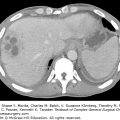On March 22, 2011, the American Board of Medical Specialties (ABMS) unanimously approved the application for a certificate in Complex General Surgical Oncology.1–3 Until then there was no formal recognition of surgeons with advanced Surgical Oncology training. Beginning in 2014, graduates of Accreditation Council on Graduate Medical Education (ACGME)-approved surgical oncology fellowships who pass the appropriate qualifying and certifying exams will achieve certification in Complex General Surgical Oncology by the American Board of Surgery (ABS).4 This is an exciting and historic achievement.
The creation of a certificate in Complex General Surgical Oncology is the result of a coordinated and persistent effort from multiple leaders in the field of Surgical Oncology and the Society of Surgical Oncology (SSO) over the last 30 years.1 In order to better understand this milestone it is necessary to review the rationale for the certificate and recount some of the highlights of the historic journey that took our specialty to this point.
CASE FOR A SEPARATE AND DISTINCT SPECIALTY AND THE RATIONALE FOR THE CERTIFICATE IN COMPLEX GENERAL SURGICAL ONCOLOGY
Documentation of the professional and scientific status of a specialty field is a necessary condition for a new certificate application from a Member Board to the ABMS. In this regard, a certificate represents formal recognition that a specialty has matured as a discipline distinct from the existing practice areas of the primary discipline through the development of a body of scientific medical knowledge which is in large part separate from, or more detailed than, that of other areas in which certification is offered.
The fundamental belief underlying the rationale for certification is that Surgical Oncology has developed as a discipline with cognitive areas that are additional to and distinct from General Surgery. This is supported by an increased understanding of cancer biology that has radically altered the way we managed cancer. Cancer care is now ideally delivered through a multidisciplinary approach incorporating surgery, radiation, chemotherapy, hormonal therapy, genetic testing, and many other complex modalities. There has been escalating complexity in all areas of oncology, with outcomes optimized through coordinated utilization of multiple modalities. With an increased recognition of the benefits of neoadjuvant therapy, operations are now more complex and require unique surgical expertise. As the efficacy of chemotherapy, radiation, and biologic agents continue to improve, more patients with advanced disease who would have been deemed unresectable in the past are now candidates for surgery with curative intent. In addition, an increasing number of patients with recurrent disease are undergoing resection, many of them having received prior aggressive therapies.
As a consequence, additional training focused in Surgical Oncology is necessary to develop a practitioner with skills additional to the ones that a General Surgeon has. The Surgical Oncology curriculum is designed to impart knowledge and qualifications which are not readily imparted by a General Surgery training: expertise in the multidisciplinary care required by the cancer patient and in complex Surgical Oncology procedures; familiarity in diagnosis and management of rare or unusual tumors, based on knowledge of the natural history of such cancers; comprehension in palliative techniques and nonsurgical palliative treatments; and awareness of chronic pain treatment. In addition, Surgical Oncology training programs provide training that expands beyond competence in clinical Surgical Oncology and the multidisciplinary care of the cancer patient. The training is designed to develop surgeons who can assume a special role in the community as leaders and educators in cancer prevention, diagnosis, treatment, and rehabilitation as well as in cancer research as surgical oncologist-scientists.
The development of Surgical Oncology as a distinct discipline from General Surgery and the need for a specialized training are the bases for the ABS certification in Complex General Surgical Oncology. ABS certification recognizes that graduates have followed a rigorous curriculum in a ACGME-accredited Surgical Oncology Training Program to which they have enrolled after completion of an ACGME-approved General Surgery Training Program.
It is essential to emphasize that the pursuit of a certificate in Surgical Oncology was never intended to underestimate or eliminate the role of General Surgery in cancer care. General Surgery has and will continue to have an essential role in the diagnosis and treatment of cancer. Cancer care is a major component of a General Surgery practice. Although Surgical Oncology training programs have been in existence for more than 30 years, as of today, 95% of cancer care is still delivered by general surgeons and only 5% is delivered by trainees of Surgical Oncology training programs. We believe that the certificate in Complex General Surgical Oncology will not alter this ratio.
The concept of evaluating medical education and training in the United States dates back to the turn of the twentieth century. In 1910, Dr Abraham Flexner chronicled the existing disastrous state of medical education and training in the United States. At that time, there were no established standards guiding medical education and no formal system to validate competency upon completion of medical training. The concept of certification by a specialty board was initially embraced by ophthalmology organizations, culminating in the foundation of the American Board for Ophthalmic Examinations in 1917. The otolaryngologists followed suit by forming the American Board of Otolaryngology in 1924. The American Board of Surgery, a private, nonprofit, autonomous organization was incorporated in 1937.
Stay updated, free articles. Join our Telegram channel

Full access? Get Clinical Tree





